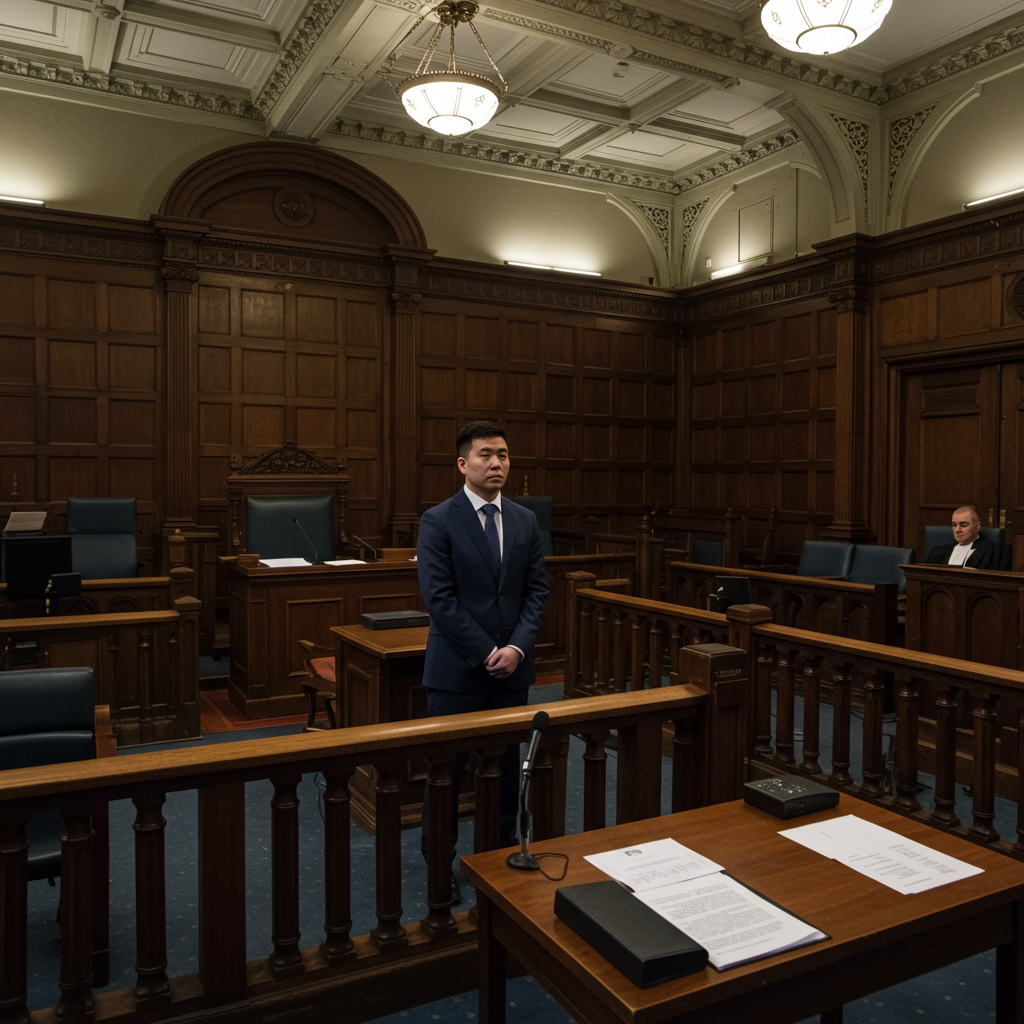Thousands of devoted followers, global dignitaries, and celebrated figures recently converged on Dharamshala, India, a town nestled in the Himalayan foothills, to mark a momentous occasion: the 90th birthday of the dalai Lama. This gathering, held on Sunday, July 6, 2025, transcended a simple birthday celebration. It served as a powerful global affirmation of support for the spiritual leader and the tibetan people, subtly challenging China’s persistent efforts to control Tibetan religious affairs, particularly the crucial issue of succession.
The week-long festivities, aligned with the Tibetan lunar calendar and culminating on the Gregorian date, drew attendees from across the globe, transforming the ordinarily tranquil exile home of the Dalai Lama into a vibrant hub of spiritual and political significance. Despite the challenge of fierce monsoon rains, spirits remained high, reflecting the deep reverence held for Tenzin Gyatso, the 14th Dalai Lama.
Celebrating a Milestone Amidst Monsoon Rains
The atmosphere in Dharamshala was electric, filled with palpable devotion despite the incessant rain. Thousands of Tibetan Buddhists, easily identified by their traditional robes, streamed towards the main temple area. The air resonated with the sounds of traditional Tibetan music, including the rhythmic beat of drums, the soaring calls of bagpipes, and the sharp clash of cymbals. Hilltop temples echoed with the deep, sonorous tones of chanted prayers, creating a powerful spiritual backdrop for the day’s events. Dance troupes performed with energy and precision, adding a visual layer to the rich cultural tapestry on display.
Among the throngs were notable long-time followers and supporters. Indian ministers were present, signifying the host nation’s respect. Western diplomats and leaders from Indian states bordering Tibet also attended, underscoring the regional and international importance of the event. Perhaps one of the most recognizable faces was Hollywood actor Richard Gere, a vocal advocate for Tibet. Taking to the podium, a smiling Gere declared it a “joyous, joyous day.” He spoke movingly about celebrating an “extraordinary life,” embracing the Dalai Lama and praising him as a figure who “totally embodies selflessness.” Later reports quoted Gere calling him “the most extraordinary man to ever walk on this planet,” a sentiment met with widespread applause. Penpa Tsering, head of the democratically elected Tibetan government-in-exile, also participated, marking the occasion by raising the Tibetan flag.
A Spiritual Leader’s Message of Compassion and Longevity
Appearing in his signature traditional robes, accented by a flowing yellow wrap, the Dalai Lama greeted his followers with a warm smile. Despite his age, he walked with the aid of two monks, projecting an image of serene resilience. He often refers to himself simply as a “simple Buddhist monk,” a title that belies his global stature as a Nobel Peace Prize laureate and the revered living manifestation of Chenrezig, the Buddhist god of compassion, for millions of Tibetan Buddhists.
Addressing the large audience, which included hundreds of red-robed monks and nuns, he reflected on his long life. “When I look back on my life, I see that I have not wasted it at all,” he stated, emphasizing that his life is dedicated to “the service of other sentient beings.” He spoke of the natural human inclination to love and help one another. His birthday message reiterated a core teaching: while material development is important, it is “vital to focus on achieving peace of mind through cultivating a good heart and by being compassionate, not just toward near and dear ones, but toward everyone.” He stressed that this universal compassion is key to making the world a better place.
Adding a surprising note to the celebrations, the Dalai Lama provided an update on his health and future plans. At a ceremony the day before, he had reassured followers of his “great physical condition.” He then made a remarkable prediction, stating he intended to live for another 40 years, reaching the age of 130. This extends his previous prediction by two decades. During the Sunday ceremony, he reiterated this wish, expressing hope to live “over 130 years” to continue serving the Buddha dharma and the Tibetan people. Reflecting on turning 90, he calmly stated that he had “no regrets” looking back, feeling he had served well and would be able to die “very peacefully” when the time comes.
Addressing the Future: Succession and Sovereignty
One of the most significant aspects of the week’s events involved the Dalai Lama directly addressing the long-standing question of his succession. For years, speculation has surrounded the future of the 600-year-old institution, including whether he might be the last Dalai Lama. During the birthday week, he explicitly confirmed plans for a successor, putting that speculation to rest. This is a critical issue deeply rooted in Tibetan Buddhist tradition, which holds that the Dalai Lama is a reincarnated being. This process has historically been a spiritual matter, not subject to political authority.
Living in exile in India since his dramatic escape from Chinese rule in 1959, the Dalai Lama reiterated his stance that any reincarnation and recognition must follow traditional Buddhist customs. Crucially, he clarified that his India-based non-profit institution, the Gaden Phodrang Trust, holds the sole authority to recognize his successor. This declaration directly contradicts Beijing’s position. He also reaffirmed his previous indication that his successor, if one is identified, would be born in the “free world,” meaning outside of China’s control. This explicit statement serves as a clear signal that he desires the succession process to remain independent of Beijing’s influence.
The Geopolitical Tug-of-War with Beijing
The Dalai Lama’s statements on succession immediately reignited the simmering political conflict with China. Beijing views the Dalai Lama as a dangerous separatist and has long asserted its authority over the recognition of Tibetan Buddhist leaders, including the Dalai Lama. Chinese officials swiftly rejected his claims, insisting that any succession must strictly follow Chinese laws, adhere to specific religious rituals and historical conventions, and ultimately receive explicit approval from the government in Beijing. They have even claimed that the succession would involve “drawing lots from a golden urn,” a method the Dalai Lama has dismissed as lacking spiritual authenticity when used dishonestly.
This fundamental disagreement over control of the spiritual leadership is a source of deep anxiety among Tibetans in exile and within Tibet itself. Many fear that China intends to appoint its own rival successor after the current Dalai Lama’s death. Such a move is widely seen as a tactic to further consolidate Beijing’s control over Tibet, the region it occupied in 1950 and has ruled ever since. The Dalai Lama has historically been the central figure guiding the Tibetan diaspora’s struggle for greater autonomy and their resistance to Chinese domination. His determination to keep the succession process independent is thus a vital part of this ongoing struggle.
Global Tributes and Assertions of Support
The celebration was not only a testament to the Dalai Lama’s spiritual authority but also a demonstration of his enduring global influence and the international support for the Tibetan cause. Tributes poured in from leaders around the world. Indian Prime Minister Narendra Modi sent warm birthday wishes via social media, calling the Dalai Lama an “enduring symbol of love, compassion, patience and moral discipline.”
Former U.S. President Barack Obama sent greetings, playfully referring to him as “the youngest 90-year-old I know” and expressing gratitude for his friendship. The United States, seeking to counter China’s influence and support human rights, also made its position clear. U.S. Secretary of State Marco Rubio sent a message highlighting the Dalai Lama’s inspiring message of “unity, peace and compassion.” Rubio explicitly stated the U.S.’s commitment to promoting the human rights and fundamental freedoms of Tibetans, preserving their heritage, and supporting their ability to choose and venerate religious leaders without interference. Indian Parliamentary and Minority Affairs Minister Kiren Rijiju, while clarifying previous remarks were personal, attended the event and referred to the Dalai Lama as India’s “most honoured guest,” reinforcing India’s complex relationship with both the spiritual leader and neighboring China. Greetings were also received from figures like Taiwan’s President Lai Ching-te and former U.S. Presidents George W. Bush and Bill Clinton.
A Legacy of Resilience and Compassion
The 14th Dalai Lama, Tenzin Gyatso, was enthroned in 1937 and took on full leadership responsibilities at a young age amidst increasing Chinese influence in Tibet. His flight to India in 1959 marked the beginning of a long and challenging exile for him and hundreds of thousands of Tibetans. Over more than seven decades abroad, he has not only sustained a vibrant Tibetan community in exile but has also become a preeminent global figure. He has dedicated his life to preserving Tibetan culture and identity, advocating for non-violence, promoting human values, fostering inter-religious harmony, and leading the Tibetan diaspora’s peaceful struggle for greater autonomy within China.
The celebrations in Dharamshala and other locations with Tibetan communities, such as Kathmandu, Nepal, underscored his continued spiritual authority and the unwavering devotion of his followers worldwide. While he humbly describes himself as a “simple Buddhist monk,” his 90th birthday was a powerful reminder of his extraordinary life, his profound teachings on compassion and peace, and the ongoing geopolitical tensions surrounding the future of Tibetan Buddhism and its leadership under Chinese rule. His clarity on succession, coupled with global support, ensures that the question of the Dalai Lama’s future will remain a central point of spiritual and political focus for years to come.
Frequently Asked Questions
What major announcements did the Dalai Lama make regarding his future during his 90th birthday events?
During the week of his 90th birthday celebrations culminating on July 6, 2025, the Dalai Lama made two significant points about his future. First, he expressed a strong personal hope and intention to live for many more decades, specifically aiming to reach the age of 130 years, extending his previous prediction. Second, and perhaps more critically, he explicitly confirmed that there will be a successor after him, ending speculation he might be the last. He also asserted that his India-based Gaden Phodrang Trust holds the sole authority to recognize this successor, and that the successor should be found in the “free world,” outside of China.
Who were some notable attendees at the Dalai Lama’s 90th birthday celebration in India?
The main celebration for the Dalai Lama’s 90th birthday took place in Dharamshala, India, his home in exile. Thousands of Tibetan Buddhists and followers gathered, alongside various dignitaries. Notable attendees and those sending greetings included Indian ministers, Western diplomats, leaders from Indian border states, and prominent long-time follower, Hollywood actor Richard Gere. Tributes and messages were also received from global figures such as Indian Prime Minister Narendra Modi, U.S. Secretary of State Marco Rubio, Taiwan’s President Lai Ching-te, and former U.S. Presidents Barack Obama, George W. Bush, and Bill Clinton.
Why is the Dalai Lama’s succession plan a source of conflict with China?
The Dalai Lama’s succession plan is highly contentious with China because Beijing asserts that it, and it alone, has the authority to approve the reincarnation and recognition of Tibetan Buddhist leaders, including the Dalai Lama. China views the current Dalai Lama as a separatist. By stating that his India-based institution will exclusively identify the successor and that the successor should be found outside China, the Dalai Lama is directly challenging Beijing’s claim of control over Tibetan religious affairs. This conflict fuels fears among Tibetans in exile that China intends to appoint a rival successor to consolidate its rule over Tibet, which it occupied in 1950.


